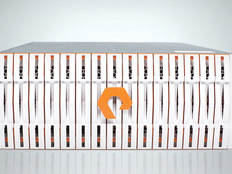Experts See New Ways to Track Learning Experiences with Blockchain
Blockchain technology remains far from mainstream, but a few early adopters have begun using it to issue digital certificates that attest to students’ educational credentials.
In a blockchain system, an official source — such as a registrar’s database — sends information to the blockchain. As each new item is added, a verification process links it to other transactions. Such systems create a decentralized ledger that employers, graduate schools and other entities can use to verify academic records more quickly than waiting for applicants to submit printed transcripts.
Because the technology serves as an immutable record, it provides considerable security, says Philipp Schmidt, director of learning innovation at the Massachusetts Institute of Technology Media Lab. In 2015, the lab used a prototype it developed as part of an open-source blockchain project to issue cryptographically signed digital certificates to lab members.
“It’s a much more reliable, permanent record than you could have in any centrally managed database — because you’re then talking about relying on one institution for verification,” Schmidt says. “If you want to verify that a transaction has happened, you can be 100 percent sure by looking at the blockchain.”
SIGN UP: Get more news from the EdTech newsletter in your inbox every two weeks!
Blockchain Streamlines Record Keeping
Although most educational applications have focused on certification, blockchain could help to verify faculty tenure or track financial aid. They could also let graduates capture a diverse set of learning experiences beyond college degrees. For example, as more education providers house information on blockchain systems, students could establish a robust record of formal and informal learning experiences, says Veronica Diaz, director of online programs for EDUCAUSE.
“Until now, institutions have been the primary owner of transcripts and educational records,” Diaz says. “Blockchain affords the ability for students to display, assemble and augment learning experiences in a way that’s more appealing to employers.”
At the University of Texas, the Total Educational Experience online learning platform was designed to let each of UT’s 14 institutions issue credentials using a personalized key. With a pilot launch scheduled for November, the platform could potentially record students’ competencies, microcertificates, and other academic and professional achievements.
“The mobile app we built is basically a wallet for all accomplishments,” says UT’s Chief Digital Officer Phil Komarny. “They’re listed in a stack, which lets you email, Facebook or message a link to an employer that’s a secure gateway to a validation site showing all the information written on the blockchain for a student.”
Accessible Data Management Made Easy
Blockchain won’t solve all data management challenges, Komarny acknowledges, but as institutions learn more about how the systems work, their structure may be appealing for certain applications.
“Part of blockchain’s benefit is it creates this trust that’s layered into what we do,” he says. “That gives us the ability to think differently about all policies and procedures. You start to look at the constraints that have been put in place because of the way the architecture was. We’re really changing that story.”
Blockchain also requires little upkeep. The Holberton School, a two-year engineering program in San Francisco, began pushing certification information about its graduates to Bitcoin’s blockchain two years ago. Sylvain Kalach, a school co-founder, says the only major investment was a software program that the school created.
“You don’t have to maintain a system,” Kalach says. “All of it is automated; there is no human action needed. Employers can get the information themselves to verify that someone has graduated from our school.”









